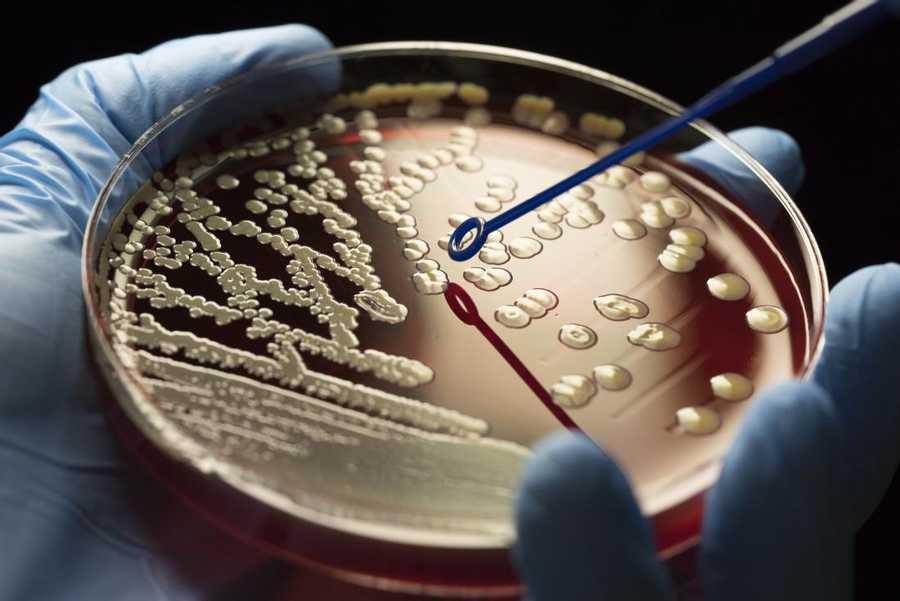9 eye-opening facts about antibiotic resistance
Curated from: ideas.ted.com
Ideas, facts & insights covering these topics:
10 ideas
·1.89K reads
13
1
Explore the World's Best Ideas
Join today and uncover 100+ curated journeys from 50+ topics. Unlock access to our mobile app with extensive features.
Antibiotic resistance
Antibiotics may lose their ability to treat bacterial infections.
Scientists have been warning us about the alarming rise in drug-resistant bacteria, but it can be curbed.
45
360 reads
Penicillin
- Penicillin was the first widely-used antibiotic. It was discovered in 1928 by Alexander Fleming, a bacteriologist.
- He noticed that the staph cells he'd been studying in a petri dish had died, and an unusual mold was growing in it.
- The mould was purified and tested in 1940, and later mass-produced.
- By 1943, the US was supplying all the Allied forces with this miracle drug, which gave them an advantage in treating injuries.
44
198 reads
Existing antibiotics found in the dirt
- An agriculture student-turned-microbiologist, Selman Waksman, tested 10,000 soil samples over the years.
- In 1943, he identified streptomycin, a broad-spectrum antibiotic effective against tuberculosis.
- Drug companies caught on to it, and commissioned pilots, explorers, and foreign correspondents sent back soil samples as they traveled, collecting dozens of new antibiotics.
- By 1970, researchers found themselves discovering the same molecules over and over.
45
214 reads
Discovery slowed while bacteria are growing resistant
Over the last 40 years, few new antibiotics were discovered. At the same time, bacteria are developing antibiotic resistance, where antibiotics are less able to damage the cells of bacteria.
- Vancomycin was first prescribed in 1972, and then vancomycin-resistant bacteria surfaced in 1988.
- Imipenem came out in 1985, and resistance was seen in 1998.
- Daptomycin came out in 2003, and resistance was noticed by 2004.
44
173 reads
Superbugs
Antibiotics work by attacking a bacteria cell. If the bacteria are not killed, the cell will fight for survival. The use of an antibiotic then increases the possibility of a bacteria cell mutating to gain resistance.
Resistant cells pass on the new coding to their offspring and to other bacteria. Some communities of cells have resistance to multiple antibiotics, known as superbugs.
47
181 reads
Antibiotics are overprescribed
According to the US Center for Disease Control, 30 percent of antibiotic prescriptions in the US are unnecessary.
Knowing that bacteria can build resistance, the best solution for ensuring that antibiotics stay effective is to use them sparingly.
42
150 reads
Antibiotic use in livestock and antibacterial soaps
In the US, 70 percent of all antibiotics sold are used to fight off infections in livestock and increase their growth. Antibiotics are used in the farming of fish, shrimp, and fruits like apples, pears, and citrus.
With the pandemic, many people are using antibacterial soaps and hand sanitizer gels, which is the right thing while the virus is a threat. In the long run, it could cause resistance to antibiotics.
42
142 reads
Antibiotic-resistant diseases keep rising
A 2019 report from the World Health Organization pointed out that at least 700,000 people are dying of drug-resistant diseases each year.
The number could rise to 10 million annually by 2050, making antibiotic-resistant infections more deadly than cancer.
42
146 reads
A promising antibiotic
Artificial intelligence has helped to find the first new broad-spectrum antibiotic, named Halicin.
Halicin kills E.coli, M. tuberculosis, and others, and is effective against the antibiotic-resistant bacteria that cause sepsis and pneumonia. Halicin doesn't look like other antibiotics we are familiar with and doesn't appear to trigger mutations as other antibiotics do.
51
163 reads
We can each do our part in avoiding antibiotic resistance
Next time you're sick, double-check with your doctor to ensure an antibiotic is necessary. If it is, follow the prescription instructions to kill the bacteria and prevent mutation.
You can also seek out antibiotic-free meat and plain soap rather than antibacterial ones. Plain soap is just as effective on virus particles.
42
165 reads
IDEAS CURATED BY
Emily Q.'s ideas are part of this journey:
Learn more about health with this collection
How to create a cosy and comfortable home environment
How to cultivate a sense of gratitude and contentment
The benefits of slowing down and enjoying simple pleasures
Related collections
Similar ideas
5 ideas
4 ideas
Nanosilver: Naughty or nice? | Science News for Students
sciencenewsforstudents.org
5 ideas
Read & Learn
20x Faster
without
deepstash
with
deepstash
with
deepstash
Personalized microlearning
—
100+ Learning Journeys
—
Access to 200,000+ ideas
—
Access to the mobile app
—
Unlimited idea saving
—
—
Unlimited history
—
—
Unlimited listening to ideas
—
—
Downloading & offline access
—
—
Supercharge your mind with one idea per day
Enter your email and spend 1 minute every day to learn something new.
I agree to receive email updates

